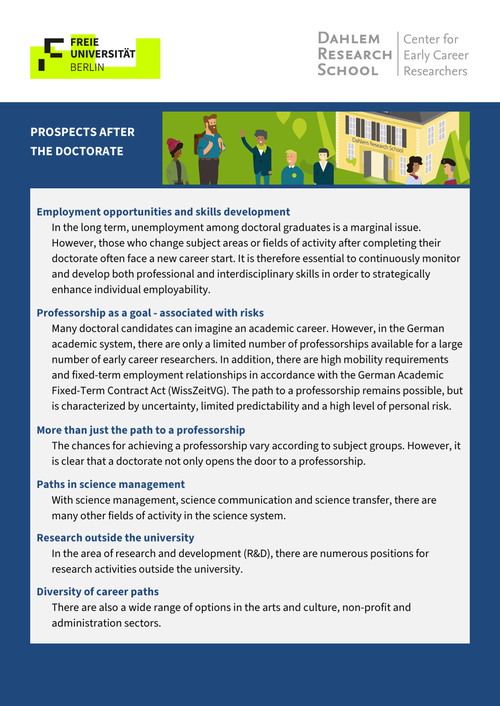Career options
Although a doctorate is essentially an academic achievement, it not only prepares researchers for a future in science and research; more than 80% of doctoral graduates go on to work outside academia. For these professions, the doctorate - also in the legal sense - is not a professional qualification, even if it indirectly trains skills that are generally useful in professional life. The only exception are academic careers, where a doctorate is usually a prerequisite for obtaining a professorship.
Outside of academic careers, a doctorate is expected in some professions, such as museum jobs or jobs in the chemical industry. You will also often find a doctorate listed among the "desired" qualifications in job advertisements for science management positions. However, you must be prepared for the fact that non-academic employers are less interested in your contribution to the advancement of knowledge in a particular discipline and rather recognize the doctorate as proof of in-depth expertise, but above all as proof of independence, perseverance, creativity, etc. This makes it all the more important to be able to translate one's own primarily academic qualifications into the language of potential employers and to meet their needs. DRS offers special training courses for this purpose. However, in addition to attending training courses, it is essential to build up appropriate networks and gain relevant experience in these areas as early as possible, for example through an internship.

